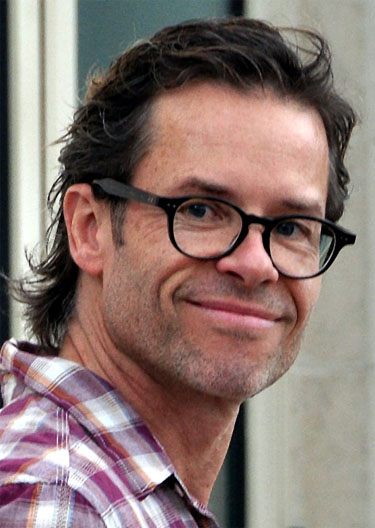When you think about those T-Mobile ads, there's often a particular person or a whole bunch of folks who just pop into your head, isn't there? It's kind of amazing how some of these people, whether they are well-known actors or just folks who have appeared a lot, really stick with you. You might find yourself humming a tune or recalling a funny moment, all thanks to the "guy" or "guys" who bring those commercials to life.
- Little Red Wagon Miranda Lambert
- Kirk Hammett Wife
- Outdoor Swivel Glider
- Sexy Pictures Of Kate Middleton
- Jack Austin Movies
These individuals, with their unique ways of acting or their friendly smiles, somehow manage to become a part of our everyday viewing habits. It's almost as if they step right out of the screen and into our conversations, making us wonder about the people behind those memorable moments. You might even chat with friends about them, asking "Who was that guy on T-Mobile commercial?" or "Did you see what those guys did this time?"
So, what makes these particular people so memorable, and who are some of these faces that have graced our screens for T-Mobile? We're going to take a closer look at the folks who have made a lasting impression, and maybe even explore a little bit about what the word "guy" itself means, since it's a word we use so often to talk about these familiar faces.
- List Of Duggar Grandchildren
- Graduation Pics With Parents
- Brandon Elementary
- Dunkin Pumpkin Spice Donuts
- Auntie Annes Mothers Day
Table of Contents
- Who is That Guy on T-Mobile Commercial?
- What Makes a Guy on T-Mobile Commercial So Recognizable?
- What Does "Guy" Really Mean Anyway?
- Are There Other Famous "Guys" Beyond the Commercials?
- Crafting Memorable Moments with the T-Mobile Guy
- Why Do These T-Mobile Ads Stick with Us?
- The Universal Appeal of the "Guy"
Who is That Guy on T-Mobile Commercial?
A Look at the Faces Making T-Mobile Commercials Memorable
When you think about the people who show up in those T-Mobile ads, a few names might pop into your head right away. There's a delightful group of well-known actors who have made these commercials something special. For instance, you might remember Zach Braff and Donald Faison, who many people know from their time on "Scrubs." Their friendly way of being together, their on-screen chemistry, really shines through. And then there's the truly charismatic Jason Momoa, a person who has a way of drawing you in with his presence. He's been a very memorable "guy on T-Mobile commercial" for many.
These guys have become household names, in a way, thanks to their entertaining antics and the catchy things they say. It's like they've found a way to connect with viewers, making the ads feel less like an advertisement and more like a little story. You might also recall a surprise nod to Jennifer Beals, known for her famous "Flashdance" role, which added a fun, unexpected twist to some of the spots. Hasan Minhaj, with his sharp way of telling jokes that hits just right, has also made an appearance, adding another layer of talent to the mix. It's almost as if the commercials bring together a group of people you'd be happy to see, making the message they're trying to share feel more approachable.
| Name | Jason Momoa |
| Known For | Charismatic presence in T-Mobile commercials, acting roles |
| Notable Traits | A way of making a strong impression, friendly demeanor |
What Makes a Guy on T-Mobile Commercial So Recognizable?
From Scrubs to the Small Screen - Familiar Faces and Their Impact
So, what is it about these particular people that makes them so easy to remember when they appear as the "guy on T-Mobile commercial"? It often comes down to their ability to bring a certain kind of energy and personality to the screen. When you see actors like Zach Braff and Donald Faison, who have a history of working together and making people laugh, there's a built-in comfort level. Viewers already know them, and that familiarity helps the message of the ad land more softly, you know? It's like seeing an old friend.
Their entertaining antics, the funny things they do, and the memorable phrases they use really help these ads stand out. Think about it: if a commercial makes you smile or even chuckle, you're more likely to remember it and, by extension, the brand it's for. This is where the talent of someone like Hasan Minhaj, with his particular way of delivering humor, comes into play. His sharp timing, his way of making a point with a joke, makes him a very effective person to have in a commercial. These people aren't just reciting lines; they're bringing their own unique flair to the role of the "guy on T-Mobile commercial."
The inclusion of someone like Jason Momoa, who has a very strong and friendly presence, also helps make the ads stick. He has a way of being on screen that just feels genuine and approachable. And then there's the fun surprise, like a nod to Jennifer Beals' famous dance from "Flashdance." These little moments, these little winks to pop culture, make the ads more than just a sales pitch. They become little pieces of entertainment that you might even look forward to seeing. It's all about making a connection, and these actors, these "guys," do a pretty good job of that.
What Does "Guy" Really Mean Anyway?
The Evolving Meaning of "Guy" in Everyday Talk
It's interesting to think about the word "guy" itself, isn't it? We use it all the time, often without really thinking about where it comes from or how its meaning has changed. When we talk about "the guy on T-Mobile commercial," we usually mean a specific person, a man. But the word "guy" has a history that's a bit more colorful than you might expect. Originally, in Britain, a "guy" was a model of a man, made from old clothes filled with straw or paper. These models were burned on bonfires as part of the celebrations for Guy Fawkes Night. So, it had a very specific, rather visual meaning.
Over time, the use of the word grew to include similar figures, and then to a person who looked a bit strange or was dressed in an unusual way. It's kind of neat how words can change their shape and meaning over the years, isn't it? In the United States, "guy" came to mean simply "man," and then, with even more time, it started to mean a person of either sex. So, if you say, "Hey guys, let's go!" you could be talking to a group that includes both men and women. It's a very flexible word, that.
The definition of "guy" in dictionaries, like the Oxford Advanced American Dictionary, tells us that a "guy" is a dude, a boy, a man, or truly anybody. It's a relaxed, informal way to talk about a person, especially a male. But as we just said, a group of people can be called "guys," even if every single person in that group is female. It's a word that has multiple beginnings, too. It's partly borrowed from French, and probably partly formed right within English, by shortening an older word. Earlier, in British English around 1836, it meant a person dressed in a grotesque or poor way, originally from 1806, meaning an effigy of Guy Fawkes, who was a key person in the Gunpowder Plot to blow up Parliament. So, when we say "the guy on T-Mobile commercial," we're using a word with a long and winding story behind it.
When the word "guy" is used for animals, it usually means either a male animal or one whose gender isn't known. It's very rarely, if ever, used for an animal that is known to be female. For example, you might hear someone say, "The guy's only doing it for some doll," meaning a male person is doing something for a female person, or even a female animal. It's all about how we use language in our daily conversations, how it adapts and grows, and how a simple word like "guy" can carry so many different shades of meaning.
Are There Other Famous "Guys" Beyond the Commercials?
The Musical "Guy" - A Different Kind of Household Name
Beyond the well-known faces like the "guy on T-Mobile commercial" that we see on our screens, there's another famous "Guy" that has made a name for itself, but in the world of music. This is the American hip hop, R&B, and soul group called Guy, which got its start in 1987. It was founded by Teddy Riley, Aaron Hall, and Timmy Gatling. This group, in a way, created a different kind of household name, one that filled our ears rather than our TV screens.
The group had a bit of a change in its lineup early on, too. Aaron Hall's younger brother, Damion Hall, stepped in to replace Timmy Gatling after the recording of their first album. This kind of shift is not unusual in music groups, but it's part of their story. They brought a particular sound to the music scene, mixing different styles together to create something fresh and appealing. So, while we might be talking about a specific "guy on T-Mobile commercial," it's good to remember that the word "guy" can point to many different kinds of famous entities, including musical acts that have left their own mark.
Their music, like the commercials we've been discussing, had a way of sticking with people. It had a feeling to it that resonated with listeners, much like a catchy jingle or a memorable line from an ad. This group, Guy, represents another way that the simple word "guy" can become associated with something widely recognized and enjoyed by many. It's a reminder that fame and recognition come in many forms, whether it's from being a familiar face in an advertisement or from creating popular tunes that get people moving.
Crafting Memorable Moments with the T-Mobile Guy
The Art of Making a Commercial Stick
So, how do commercials manage to make a "guy on T-Mobile commercial" so unforgettable? It's often about putting together a blend of recognizable faces, a good script, and a touch of something unexpected. When you have people like Zach Braff and Donald Faison, who have a natural ease with each other, it makes the whole thing feel more real and less like an act. Their back-and-forth, their way of playing off each other, really helps to build a connection with the people watching.
The use of popular culture references, like the nod to Jennifer Beals' iconic "Flashdance" moment, also helps. It creates a shared experience with the audience, a little inside joke that makes the commercial more than just a sales pitch. It's a way of saying, "We get you, and we know what you like." This kind of thoughtful touch makes the "guy on T-Mobile commercial" feel like someone who's in on the fun with you.
And then there's the overall feeling of the commercial. Some of these ads have a feeling that reminds you of a beloved film, like "What a feelin'" from the well-liked 1983 movie. This connection to something already held dear by many people can make the ad itself feel warm and familiar. It's a subtle way to make the "guy on T-Mobile commercial" and the message they're sharing feel more appealing and less like something you'd want to skip past. It's about creating a little bit of joy and recognition.
Why Do These T-Mobile Ads Stick with Us?
The Catchy Phrases and Antics of the T-Mobile Commercial Guy
It's pretty clear that the "guy on T-Mobile commercial" and the whole group of actors in these ads do a good job of staying in our minds. A big part of this is because of their entertaining antics and the catchy things they say. When a commercial has a line that you find yourself repeating later, or a funny action that makes you smile when you think about it, that's a sign it's made an impact. These ads often have that quality, making them more than just background noise.
The people chosen for these roles, like the charismatic Jason Momoa or the comedic Hasan Minhaj, bring a certain something that makes their actions and words memorable. Their ability to deliver a line with just the right timing, or to perform a silly dance that gets stuck in your head, contributes a lot. It's about creating moments that are genuinely entertaining, not just informative. This entertainment factor helps the "guy on T-Mobile commercial" become a figure you actually look forward to seeing.
Moreover, the overall vibe of these commercials tends to be light-hearted and fun. They don't take themselves too seriously, which can be a refreshing change from other advertisements. This approach helps to build a positive feeling around the brand and the people representing it. So, when you see that "guy on T-Mobile commercial," you associate him with good feelings and a bit of a laugh, which is a powerful thing for an ad to achieve.
The Universal Appeal of the "Guy"
From Celebrities to Everyday Folks - The Broad Reach of "Guy"
The idea of the "guy on T-Mobile commercial" really highlights how a simple word like "guy" can connect us to so many different people and ideas. From well-known faces like Jason Momoa and the "Scrubs" duo, who bring their star power to the screen, to the general meaning of the word itself, "guy" has a wide reach. It's a term that can be used to talk about a specific man, or a group of people, no matter their gender. It's a very adaptable word, really.
This broadness in meaning is part of what makes the word "guy" so useful in everyday talk. It allows us to refer to people in a casual, friendly way, whether we're talking about a celebrity who makes us laugh in an ad or just a person we know from around the neighborhood. It's an informal way to refer to a person, especially a male, but it's also true that a group of people can be called "guys," even if they're all female. This flexibility makes it a very human-centric word.
Ultimately, whether we're discussing the particular "guy on T-Mobile commercial" who caught our eye, or the historical journey of the word "guy" itself, it all points to how language and popular culture intertwine. These commercials, and the people in them, become part of our collective experience, sparking conversations and bringing a little bit of entertainment into our lives. It's a testament to the power of a familiar face and a well-placed word.
- Obamas Marriage
- John Madden Turkey Legs
- New Color Invented
- Fred Moore Day Nursery
- Libra 2025 Love Horoscope


